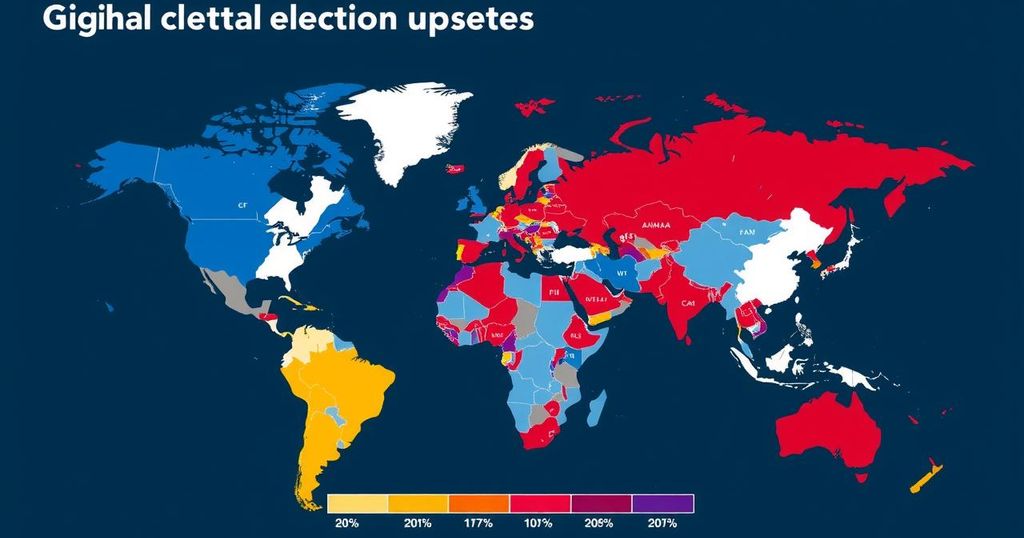Incumbent parties globally are losing elections, a trend reflected in the recent performance of the Democratic Party in the U.S. Despite relatively minor losses, discontent with economic issues predominated voters’ concerns. Many democracies experienced historic defeats for ruling parties, while some incumbents retained power focusing on security issues. Signs suggest future opportunities may arise for Democrats as they transition from incumbents.
In recent electoral patterns across the globe, incumbent parties have faced considerable defeats, with Vice President Kamala Harris’s campaign reflecting this broader trend. As nations grappled with domestic issues, voters’ discontent emerged as a unifying theme in numerous democracies. Notably, in the current electoral cycle, over 80 percent of incumbent parties worldwide experienced declines in vote share. Countries including Japan and Botswana observed long-standing ruling parties losing their majority, while opposition candidates made significant gains in nations such as Senegal and Sri Lanka. Despite these global trends, Democrats in the United States experienced relatively minor electoral losses. Compared to counterparts in higher-income democracies, their results were among the least severe. While Harris narrowly missed winning various swing states, forecasts indicate that Democrats may maintain or even increase their House representation. One contributing factor to this softer blow for the Democrats may be attributed to a relatively strong U.S. economy, contrasting sharply with rampant inflation faced across many countries. However, American voters remain preoccupied with pressing economic challenges, notably inflation and housing costs, overshadowing the administration’s positive economic indicators. The limited successes of some incumbent governments this year are attributed to campaigns heavily focused on national security threats, unlike the U.S. landscape, where such themes did not dominate discussions. Consequently, the sentiments of economic anxiety and dissatisfaction with governance resulted in notable losses for Democrats. However, given the cyclical nature of politics, there exists potential optimism for future Democratic performances as they shift from incumbency to opposition status in upcoming elections.
The current global political landscape reveals a pronounced trend of electoral setbacks for incumbent parties across various democracies. This phenomenon has particularly manifested in the wake of the COVID-19 pandemic, where economic instability and voter discontent have intensified. In many democratic nations, voters have expressed significant dissatisfaction with their governments, resulting in substantial losses for sitting parties. Analyzing this context helps to understand the difficulties faced by Democrats in the United States during the most recent election cycle.
The electoral outcomes across the globe reveal a distinct pattern of incumbent challenges, with the U.S. serving as a case in point. While Democrats managed to mitigate losses compared to other nations, the overarching sentiment of unrest among voters persisted. The economic climate reinforced by widespread inflation translates to a complex environment for Democratic prospects. Ultimately, as parties adjust to their roles post-election, there exists a prospective advantage for Democrats in the next electoral cycle, given their shift from governing to opposition.
Original Source: abcnews.go.com






